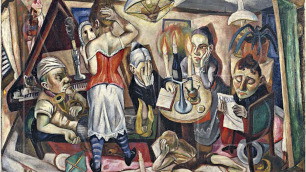Quiz 1A: Names and Pronouns
In this quiz you can practice replacing names with pronouns. The person or people are listed first. Your task is to enter the correct pronoun.- Johann und ich: lesen die Nachrichten.
- To Frau Dr. Müller: Ja, trinken Kaffee.
- Johann: trinkt Kaffee.
- Gisela: trinkt Tee.
- To Gisela: liest die Nachrichten.
- To Johann und Gisela: trinkt viel Kaffee.
- About myself: trinke viel Kaffee.
- Gisela und Johann: trinken viel Tee.
- Johann: liest die Nachrichten.
- To you: trinkst Kaffee und Tee.
Quiz 1B: Verb Conjugations
Now you can practice verb conjugations in a short text. We'll stick with the verbs lesen and trinken, and now we'll layer in times of the day. Here are a few vocabulary words to help you, as well as the conjugation of the irregular verb essen:| morgens* = in the morning nachmittags* = in the afternoon manchmal = sometimes Kuchen = cake Brötchen = rolls |
* Using these two words with the -s endings indicates that we're talking about habits, about things people usually do at that time of day.
Conjugations of the verb essen
| ich esse | wir essen |
| du isst | ihr esst |
| er isst sie isst | sie/Sie essen |
- Susanne morgens die Nachrichten.
- Nachmittags sie Tee.
- Manchmal sie Kuchen.
- Ich nachmittags die Nachrichten.
- Morgens esse ich Brötchen und Kaffee.
- Johann und Gisela morgens Nachrichten.
- Sie Brötchen und trinken Kaffee.
- Nachmittags essen sie Kuchen und Tee.

























